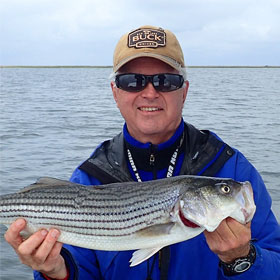For Safe Boating Ed, Look For Approved NASBLA Boating Courses
By Ken Schultz
Mar 29, 2024
Approved NASBLA boating courses set the standard for general, entry-level knowledge a boater should possess for safe recreational boat operation
Quick quiz: What private boating organization affects the lives of 85 million boaters in the U.S.?
Answer: The National Association of State Boating Law Administrators. Known by its acronym, the nonprofit NASBLA represents the boating authorities of all fifty states plus U.S territories with a mission to develop public policy for recreational boating safety and to provide standards for educating the public and administrators. It is particularly active in developing standards for boating safety education through approved NASBLA boating courses.
State Differences
State and federal rules for boat operation and boating safety are not always the same. Each state establishes its own requirements for operating a boat, particularly a motorized boat, and for certain boating-related safety measures. These requirements often differ from the safety requirements that the U. S. Coast Guard mandates for certain vessels on navigable waterways, and they may not be the same from one state to another.
Some states, for example, require all boat operators over a specific age to have completed a boater safety education course before they can register and operate a motorboat, while others have a birthdate cutoff, meaning that people born before that date are not required to have completed such a course (although it might still be beneficial to do so).
There are also state-to-state differences with respect to boating on public versus private waters, youth boat operation, PFD wearing (under a certain age and in winter), and more.
An Overview of NASBLA Boating Courses
The National Association of State Boating Law Administrators has established basic boating knowledge standards for boating safety education courses. As their website notes, “These standards define general, entry-level knowledge a boater should possess for safe recreational boat operation. This consensus-based standard is designed to support course providers and raise the overall level of quality, availability, and consistency of instruction in entry-level recreational boater knowledge.”
There are a host of organizations that offer boating safety education courses. Many state wildlife agencies, natural resources agencies, recreation commissions, or boat commissions also offer them. Some are available online, others in-person. While it’s convenient to take an online boating safety course, in-person courses have the benefit of being given by instructors with local/regional knowledge and experience, and there can be informative interaction with local attendees and discussion of safety and navigational matters specific to the particular area where you’ll be boating.
After passing a test at the end of approved NASBLA boating courses, participants receive a certificate which allows them to operate a motorboat. In some states this certificate may also be necessary to register a boat. With a certificate from an NASBA-approved course, you’ll be good to operate a boat in all states, as well as qualify for boat operation and/or registration in a state that you may later move to.









